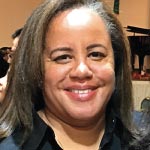As many as 25 percent of San Francisco's police officers will become part of a specially trained crisis intervention team under a plan designed to dial back potentially dangerous situations involving the mentally ill.
After a hearing that went on for more than three hours Wednesday night, the Police Commission voted unanimously to approve the plan, which is based on a nationally acclaimed model that has been running in Memphis since 1988.
"This is a program we need, and we need it now," said Commissioner Petra DeJesus.
At a September retreat, the commission agreed to make improving the way officers deal with the mentally disturbed its top priority for this year. Since then, police have killed two mentally ill suspects and wounded another.
"The number of mental health issues ... our officers have to deal with on a daily basis is disproportionate to other cities," said commission President Thomas Mazzucco. "You need only to walk down a few blocks in San Francisco to see people in doorways talking to themselves ... officers have to deal with them when they go off."
Under the Memphis model, officers trained in dealing with psychiatric problems would be called to the scene of any confrontation with a mentally ill suspect.
Much of the training for those officers involves instruction in how to de-escalate a potentially violent situation by talking down an agitated, delusional and often frightened suspect, said Sam Cochran, a retired Memphis Police major who ran the department's crisis intervention team for years.
Trying to help mentally ill
The shouted commands, threatening postures and overall intensity of a typical confrontation with an armed suspect don't work with someone who is mentally ill, he told the commission.
Crisis intervention officers are trained "to use body language and verbiage to show that we're here to help an individual," Cochran said. They "slow things down, use slow speech and even introduce themselves and ask (the suspects) their names."
The crisis intervention model has worked in Memphis. A study by Cochran and Randolph Dupont, a University of Memphis professor who helped design the plan, found that injuries to officers involved in mental illness crisis calls dropped by 80 percent, down to the same level as every other type of police call.
Most important for San Francisco, Memphis police have shot only two mentally ill suspects since 1988.
"The goal of all of this," said Commissioner Jim Hammer, "is so police officers go home safe at night and members of the community, especially those who are mentally ill, have less force used on them."

